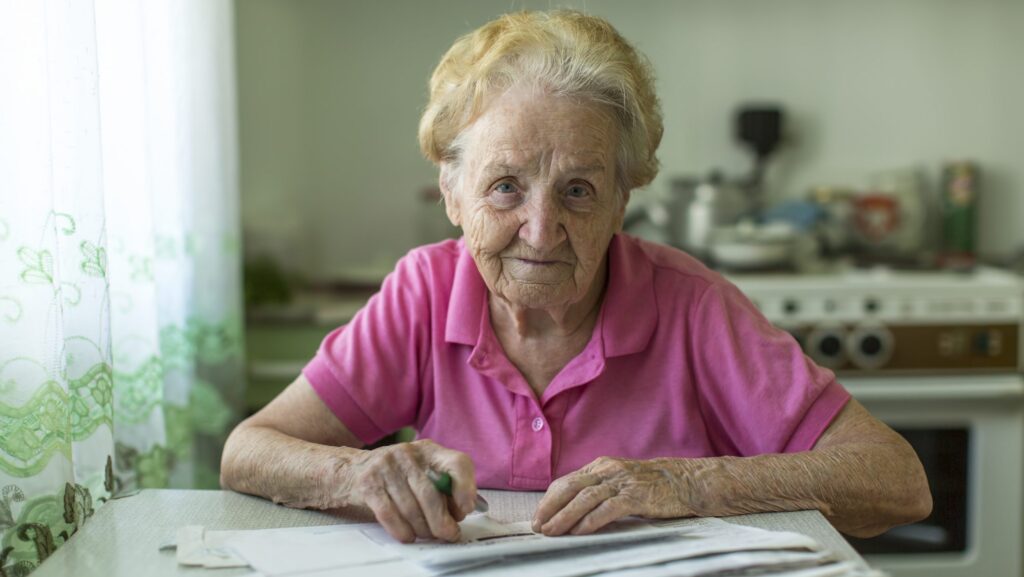
How the pandemic affects our senior population

Catholic Social Services (CSS) serves two populations of people: the working-poor and vulnerable seniors. We help working-poor families stabilize and become self-sufficient through case management, mental healthcare, and emergency assistance. We help low-income seniors age with grace and independence through supportive services and community-impact opportunities.
Through the Supportive Services program, CSS removes barriers for low-income seniors who need assistance to maintain their independence and remain safely in their own homes. Our licensed social workers provide individualized care and case management to older adults and their families by helping seniors navigate their benefits, locate transportation services, schedule medical appointments, manage finances, find appropriate housing and more. We can provide these services in their homes, as many are home-bound, especially in rural counties where seniors have even more barriers to accessing care.
Right now, we are all living in an unprecedented and difficult time. The COVID-19 pandemic has impacted all of us and we are all struggling to adjust to this new normal and live our lives as best as we can. However, through everything, it is the most vulnerable of our communities who have been hurt the most. That includes the 3,000 seniors CSS serves annually who were already facing the challenges of aging — such as food insecurity, affordable housing, connecting to resources, living on a fixed income, transportation and social isolation — before the pandemic started.
Due to the Stay at Home order for this at-risk population, many feel trapped within their own homes. Others who were already stuck due to physical or cognitive limitations are now experiencing an even deeper feeling of loneliness. In the craziness of everything, we cannot allow these seniors to feel like they are forgotten. In both instances, it is not only their emotional health that is at risk, but their physical as well; the National Institute on Aging recently reported, “Human beings are social creatures. Our connection to others enables us to survive and thrive. Yet, as we age, many of us are alone more often than when we were younger, leaving us vulnerable to social isolation and loneliness — and related health problems such as cognitive decline, depression, and heart disease.”
One of those seniors is Lois, who suffers from Lou Gehrig’s disease, lives on the second floor of a substandard housing building and has trouble doing simple things. Each week, she does her laundry by putting all of it in a pillowcase, throwing it down the stairs and then scooting down each flight of stairs, repeating the act until she finally makes it to the laundry room in the basement. When she’s done, she crawls up the stairs, dragging her laundry in the pillowcase until she’s back at her door.
Lois was recently connected to Tim, one of our licensed social workers. During their meeting, she told him, “I just want to remain independent for as long as I can but live in a home that you would want to live in.” While Tim started to work on finding Lois affordable housing and other needed support, the pandemic hit and many property managers and landlords stopped taking applications. Despite everything, she keeps hope alive as Tim continues to meet virtually with Lois regularly and safely delivers her food boxes and other necessities.
Another senior, Miss Jones, is home-bound with physical limitations and is afraid to leave due to the pandemic. When people swarmed stores and bought toiletries and cleaning items for their homes, they left nothing for Miss Jones, who is on heart medication that acts as a diuretic and creates a greater need for toiletries. Knowing this, Tim called her to let her know he was bringing food and toilet paper. Through her tears, she told Tim, “I never thought that I would cry over toilet paper.”
Additionally, we serve some homeless seniors our social workers would meet in public places regularly to help them find the resources they need. They never gave up before the pandemic hit, and we know that they will not give up after.
These vulnerable seniors represent a small part of the 35,000 clients in 23 counties that we serve at Catholic Social Services. They are the reason that we do what we do, and it is together that we all provide hope.








